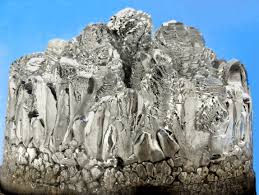Unveiling Protein Deficiency: Impact, Aging, Myths, and Benefits
- Apr 18, 2024
- 2 min read
Protein, often synonymous with athleticism, holds crucial importance for all, especially as we age. Yet, protein deficiency remains a widespread issue, with significant implications for health. In this blog, we’ll explore the causes of protein deficiency, its correlation with aging, the merits of adequate protein intake, debunk common misconceptions, and underscore why prioritising protein is paramount for overall well-being.
Causes of Protein Deficiency
Dietary Restrictions: Vegetarians and vegans may struggle to obtain adequate protein without careful dietary planning.
Economic Constraints: Costly protein sources can limit accessibility, particularly for low-income individuals.
Health Conditions: Medical issues, such as gastrointestinal disorders, can hinder protein absorption and utilisation.
Aging: Natural changes in appetite, taste preferences and mobility often lead to decreased protein intake among seniors.
Impact of Aging on Protein Needs
As we age, maintaining muscle mass becomes increasingly vital for mobility and health. Unfortunately, declining appetite and physical challenges make it challenging for many seniors to consume enough protein to meet their bodies' demands.
Benefits of Adequate Protein Intake
Protein plays a pivotal role in various bodily functions, including:
Muscle Health: Essential for preserving muscle mass and strength, particularly crucial in aging populations.
Bone Health: Supports bone density and reduces the risk of osteoporosis.
Metabolic Function: Aids in hormone regulation, appetite control and metabolism.
Immune System Support: Contributes to antibody production and immune response.
Debunking Protein Myths
Myth #1: High Protein Diets Harm Kidneys: For most individuals, high protein intake isn’t harmful to kidney health unless preexisting kidney issues are present.
Myth #2: Protein Solely Comes from Meat: Plant-based proteins offer viable alternatives to meat sources.
Myth #3: More Protein Equals More Muscle: Muscle growth relies on a combination of protein intake and physical activity, particularly strength training.
Why Prioritise Protein?
Amidst the challenges of aging, protein emerges as a critical ally in maintaining health and vitality. Whether sourced from animal or plant origins, ensuring sufficient protein intake is essential for preserving muscle mass, supporting metabolic function and bolstering immune resilience.
In summary, protein isn’t just for athletes; it’s a cornerstone of optimal health for everyone, regardless of age or lifestyle. By embracing a protein-rich diet, you invest in a stronger, healthier future.
If you would like to add a high quality protein supplement to your diet please view my partner business LiveGood, we have premium supplements at wholesale prices, available for global delivery, you can find them at www.livegood.com/SerenaEasy



Comments